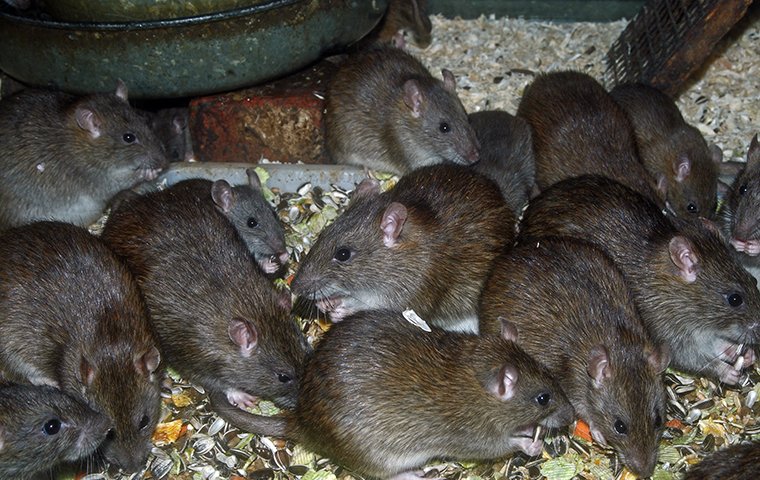What are rodents?
Rodents are a type of mammal and live throughout the world; the only continent they don’t live on is Antarctica. Mice, rats, squirrels, porcupines, and guinea pigs are examples of rodents. Rodents are known for their destructive behaviors caused by their constant need to chew. In fact, rodents are part of the order Rodentia, which means, “to gnaw.”
All rodents have front incisors that continuously grow. In order to stop theses teeth from overgrowing, which would prevent them from eating, they constantly gnaw on anything they come across, making them unwanted pests to have in our homes or businesses.
Are rodents dangerous?
Rodents don’t typically cause us physical harm, but they do spread disease, destroy property, and cause structural damage. Rodent infestations can lead to short circuits, fires, and water damage after they chew through wires, pipes, ducts, and other structural elements. While wandering through your home, they will chew on or stain with their excrement furniture, clothing, boxes, books, and more. If they find their way into your garage, they may decide to nest in your car, lawnmower, or boat.
Also responsible for creating health risks, rodents can spread many diseases and bacteria to people. Rodents can spread lymphocytic choriomeningitis (LCM), salmonellosis, hantavirus, and leptospirosis. Other problems rodents create include triggering allergies with their shed fur and excrement, contaminating food, and creating a musky odor in your home near their nesting sites.
Why do I have a rodent problem?
Things like gardens, trash cans, compost piles, bowls of pet food, fruit trees, bird feeders, and other sources of food are what attract rodents to a property. Once foraging for food in your yard, it won’t be long until rodents find their way into your home, garage, or other outbuilding either while they forage for food or to build their nest in a sheltered, quiet location.
Rodents may move indoors at any time of the year, but usually do so during periods of extreme heat or cold. Cracks in the foundation, spaces under doors, open chimneys, and holes along the roofline all make common entry points into homes and other buildings for rodents.
Where will I find rodents?
Many species of rodents live close to people and have learned to use our yards, parks, homes, and other buildings as places to search for food and shelter. Rodents also like to live around the edges of ponds and lakes, in crop fields, and wooded areas.
Rodents that have moved inside to nest usually place their nests in the following locations:
-
Behind wall voids
-
Behind large appliances
-
In storage boxes
-
In the backs of cabinets and closets
-
In basements, attics, and chimneys
How do I get rid of rodents?
To solve your rodent problem, it is best to partner with a professional. PESTOUT® is committed to getting rid of rodents and other pests, and keeping them out! Here at PESTOUT®, we are a family-owned company dedicated to serving the needs of our residential and commercial customers.
Our friendly professionals utilize advanced technologies to deliver the comprehensive pest control services needed to solve pest problems in Hampton Roads Virginia. If you would like to learn more about implementing our rodent control services into your Virginia home or business, reach out to PESTOUT® today. One call controls them all!
How can I prevent rodents in the future?
Prevent problems with rodents by implementing the following prevention tips in and around your Virginia home:
-
Remove bird feeders from your property.
-
Keep locking lids on trash cans and compost bins.
-
Seal up entry points in the foundation and exterior walls of your home.
-
Use steel wool to seal spaces around wires, pipes, and other utilities entering your home.
-
Place mesh covers over vents and chimney openings.
-
Keep the grass cut short.
-
Cut back shrubs, bushes, and tree branches from your home.
-
Get rid of standing water from your property.
-
Inside, store your food in the refrigerator or containers with airtight lids.
Call PESTOUT today for your courtesy comprehensive inspection or to schedule a service
Complete the form below to schedule your no obligation inspection.

